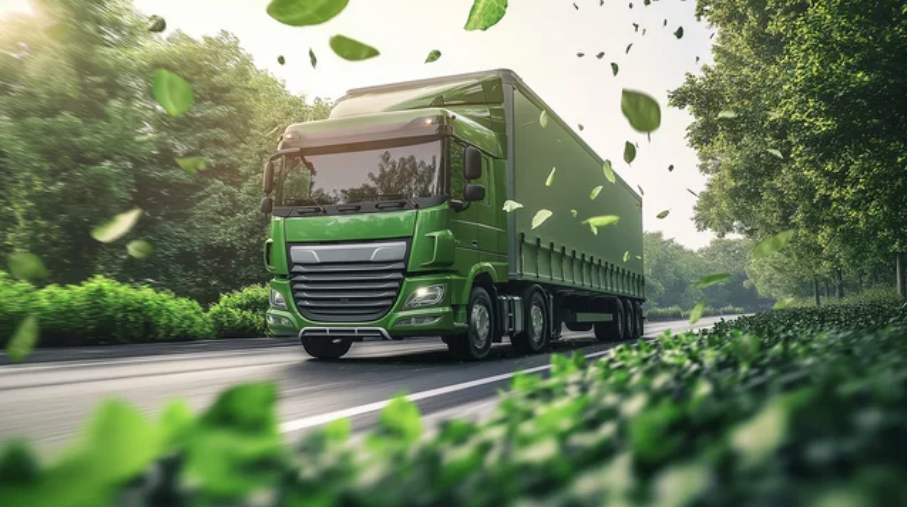The rumble of delivery vehicles, the clatter of forklifts – these are the sounds of a thriving transport and warehousing business. But in today’s world, that rumble and clatter can also carry a growing environmental footprint. As consumers and businesses alike become increasingly eco-conscious, embracing sustainable practices isn’t just a “nice-to-have” – it’s a smart business strategy.
For small and medium-sized enterprises in the transport and warehousing sector, the idea of “going green” might seem daunting. Visions of massive overhauls and hefty investments can be off-putting. However, sustainability doesn’t require a complete overnight transformation. It’s about making conscious, incremental changes that not only benefit the planet but can also boost your bottom line and enhance your reputation.
Where to Begin Your Sustainable Journey:
The good news is that there are numerous avenues for SMEs to integrate sustainable practices. Here are a few key areas to consider:
1. Optimising Transportation:
- Route Optimisation: Leverage technology to plan the most efficient routes, minimising mileage, fuel consumption, and emissions. Think about software that considers traffic, delivery windows, and vehicle capacity.
- Fleet Management: Regularly maintain your vehicles to ensure optimal performance and fuel efficiency. Consider transitioning to electric vehicles (EVs) or hybrid options as your budget allows and charging infrastructure develops. Switching diesel for responsibly sourced HVO can have an even larger positive impact on your carbon footprint. Even small steps like ensuring correct tire pressure can make a difference.
- Driver Training: Educate your drivers on fuel-efficient driving techniques, such as smooth acceleration and braking, and avoiding unnecessary idling.
- Consolidation and Collaboration: Explore opportunities to consolidate shipments with other businesses or utilise shared warehousing spaces to reduce the number of individual journeys.
2. Greening Your Warehousing Operations:
- Energy Efficiency: Switch to energy-efficient lighting, such as LEDs. Implement smart building management systems to optimise heating, cooling, and ventilation. Consider renewable energy sources like solar panels if feasible. Ensuring your energy supply is REGO backed is also a great start.
- Waste Reduction and Recycling: Implement a comprehensive waste management program. Clearly label bins for different types of waste and educate your employees on proper sorting. Explore opportunities to reduce packaging waste and reuse materials where possible.
- Water Conservation: Monitor water usage and implement measures to reduce consumption in areas like cleaning and sanitation.
- Sustainable Materials: Opt for eco-friendly packaging materials and explore suppliers who prioritise sustainability in their own operations.
3. Embracing Technology:
- Paperless Operations: Transition to digital documentation for invoices, delivery notes, and inventory management. This reduces paper waste and streamlines processes.
- Warehouse Management Systems (WMS): Implement a WMS to optimise storage and retrieval processes, reducing unnecessary movement and energy consumption.
- Telematics and IoT: Utilise telematics to monitor vehicle performance and driver behavior. Explore Internet of Things (IoT) devices for warehouse monitoring, such as temperature and humidity sensors, to optimize energy usage.

The Benefits Go Beyond the Environment:
While the environmental benefits of sustainable practices are clear, the advantages for your SME are equally compelling:
- Cost Savings: Reduced fuel consumption, lower energy bills, and decreased waste disposal costs can significantly impact your bottom line.
- Enhanced Reputation: Demonstrating a commitment to sustainability can attract environmentally conscious customers and partners, giving you a competitive edge.
- Improved Employee Engagement: Employees are increasingly drawn to companies with strong ethical and environmental values. Embracing sustainability can boost morale and attract talent.
- Regulatory Compliance: As environmental regulations become stricter, proactive adoption of sustainable practices can help you stay ahead of the curve and avoid potential penalties.
- Innovation and Efficiency: The process of implementing sustainable practices often leads to identifying inefficiencies and adopting innovative solutions that improve overall operations.
Taking the First Step:
The journey towards sustainability starts with a single step. Begin by assessing your current operations and identifying areas where you can make the most significant impact with the least amount of disruption. Engage your employees in the process – their insights and ideas can be invaluable.
Don’t strive for perfection from day one. Focus on making consistent progress and celebrating small victories along the way. By embracing sustainable practices, your transport and warehousing SME can drive positive change, both for the environment and for the future of your business. The road to a greener future is open – are you ready to take the wheel?
